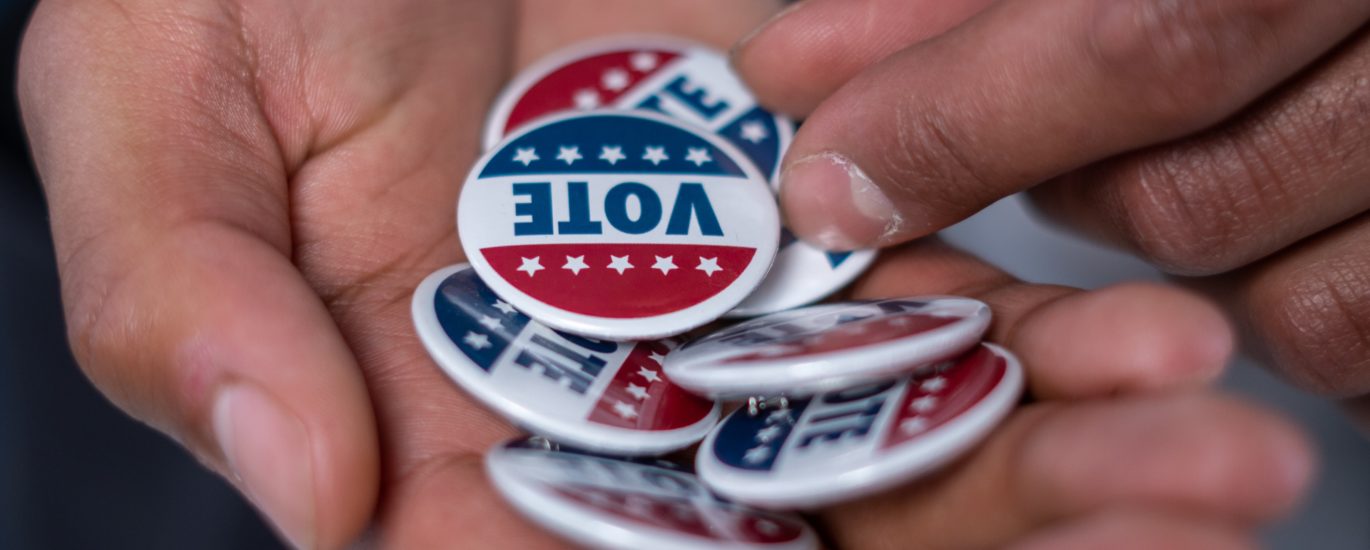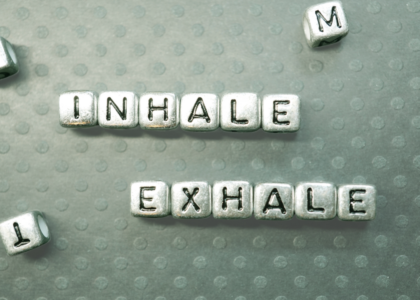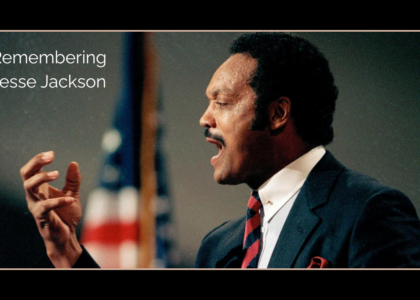by Larry Pullen
In thinking about the past four years and more recently the presidential election, I recall Reinhold Niebuhr’s famous aphorism, “[Our] capacity for justice makes democracy possible, but [our] inclination toward injustice makes democracy necessary.” For many of us, especially for me as a white man, it has been easy to speak favorably of democracy while not really being explicit about what that means because our political system could be so structured as to express, among other things, institutional racism.
Every class or lecture on the founding of America and the framing of the Constitution would inevitably involve the lecturer saying at some point that the framers were not optimists about the perfectibility of human nature. They understood how flawed humans are and how given we are to use our power for personal gain. Of course the lecturer would then praise the wisdom of the structure of the government—and frequently neglect the significance of the accommodation made to slave owners—in that it would distribute power so as to prevent any one person or faction from gaining an inordinate share.
Of course the framers also knew of the need for virtue, both of the civic kind and of the personal kind, in order for our experiment in self-government to succeed. They tended not to understand democracy or so it seems, or to value it as we do now, and thus set up a democratic republic or representative democracy more trusting in the reflective rationality of representatives, especially senators who were not at the time directly elected by the people.
Yet for all the wisdom reflected in the Constitution we must heed the poet W.H. Auden’s warning, “Beware of systems so perfect that people will no longer have to be good.” Even before he was elected president, Mr. Trump was playing on our prejudices falsely saying that he saw thousands of Muslims in New Jersey celebrating the destruction of 9/11. Before he spoke of “good people on both sides” in Charlottesville where white supremacists were demonstrating, he questioned whether a judge could be fair to him because the judge’s parents were Mexican American. When told that Vladimir Putin had his opponents killed candidate Trump responded by saying, “Do you think we’re so innocent?” thus drawing a moral equivalence between Russia and the U.S.
As some of his supporters suggested when they elected him president, they were not electing him to be pastor-in-chief. Yet as President Franklin Roosevelt stated, “[The Presidency] is more than an engineering job, efficient or inefficient. It is pre-eminently a place of moral leadership.” In order to create a more perfect union we must claim “the better angels of our nature.”
While over seventy-four million people voted to elect Joe Biden president, seventy-one million voted to re-elect President Trump. From my perspective the unwillingness or inability of President Trump to provide that moral leadership disqualified him for office. So what do I do, what do we do, in dealing with those people who supported him? Since his election in 2016 a large number of people have been asking the question, “How could this happen?” At some level this is simply about policy over which negotiations could occur. Perhaps more profoundly it is about the various cultures we inhabit. Whatever the reasons we must learn to live together as brothers and sisters created in God’s image.
Not long ago I was watching Ruth Bader Ginsberg’s confirmation hearing for Supreme Court justice and noticed she quoted from Judge Learned Hand’s speech, “The Spirit of Liberty.” In that speech Judge Hand says, “The spirit of liberty is the spirit which is not too sure that it is right; the spirit of liberty is the spirit which seeks to understand the minds of other men and women; the spirit of liberty is the spirit which weighs their interest alongside its own without bias; the spirit of liberty remembers that not even a sparrow falls to earth unheeded; the spirit of liberty is the spirit of him who, near two thousand years ago, taught [humankind] that lesson it has never learned, but has never quite forgotten—that there may be a kingdom where the least shall be heard and considered side-by-side with the greatest.”
As one who has been concerned about the racism inherent in much of Trump’s support, I find it difficult to adopt the humility implied in at least the first sentence of Judge Hand’s statement. Nevertheless, at the heart of our reconciliation and transformation of society is not judgment but forgiveness. As President-elect Biden has said, “Now let’s give each other a chance. . . . This is a time to heal.” As we are able to heal our social fabric we will be able to demonstrate our capacity for justice ever mindful of the need to perfect our democracy to protect against our inclination toward injustice.
L. Larry Pullen of Ashburn, Virginia, is a former college professor of religion and society and represents the Alliance on the Board of Directors of the Baptist Joint Committee on Religious Liberty.





Recent Comments